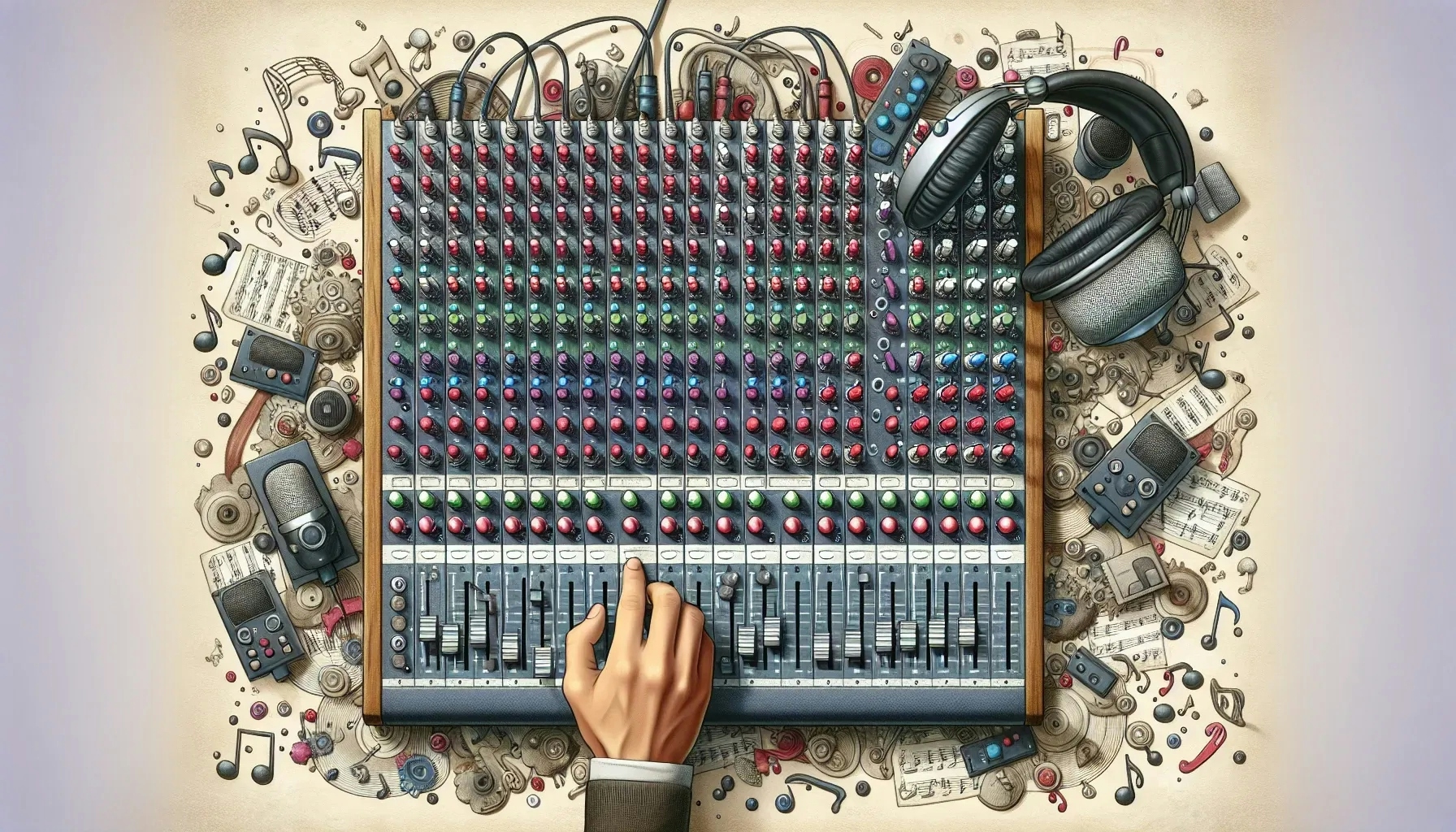Welcome to a comprehensive study where we delve into the fascinating world of music genres. We will explore the evolution of music, the rise and fall of various genres, and the factors influencing these trends. This blog post aims to provide a thorough analysis of music genre trends, offering insights into the dynamic nature of music and its impact on society.
The Evolution of Music Genres
Music, like any other form of art, evolves over time. It reflects societal changes, technological advancements, and shifts in cultural preferences. The 20th century witnessed the birth of numerous music genres, each with its unique characteristics and appeal. Jazz, for instance, emerged in the early 1900s, embodying the spirit of freedom and improvisation.
Rock and roll, born in the 1950s, was a rebellious response to the conservative post-war era. The genre's energetic beats and rebellious lyrics resonated with the youth, leading to its widespread popularity. Similarly, the late 20th century saw the rise of hip-hop, a genre deeply rooted in the African-American and Latino communities' experiences.
However, the evolution of music genres is not a linear process. Some genres, like disco, enjoyed immense popularity for a brief period before fading into obscurity. Others, like rock, have evolved and branched out into numerous sub-genres, each with its unique style and fan base.
The Rise and Fall of Music Genres
The popularity of music genres fluctuates over time, influenced by various factors. The rise of a genre often coincides with societal changes or technological advancements. For instance, the advent of MTV in the 1980s played a significant role in popularizing pop music. The platform's music videos allowed artists to reach a wider audience, leading to the genre's dominance.
However, the fall of a genre is often more gradual. As societal tastes change, genres that once dominated the charts may slowly lose their appeal. For instance, the popularity of rock music has waned over the past few decades, replaced by pop and hip-hop. This shift reflects changes in societal preferences, with younger audiences favoring the catchy beats and relatable lyrics of pop and hip-hop.
The Impact of Technology on Music Genre Trends
Technology plays a crucial role in shaping music genre trends. The invention of the phonograph in the late 19th century, for instance, revolutionized the music industry. It allowed for the mass production of music, leading to the rise of popular music genres like jazz and blues.
The advent of the internet and digital music platforms in the late 20th century further transformed the music landscape. These platforms democratized music, allowing independent artists to reach a global audience. This shift has led to the rise of numerous niche genres, from indie rock to vaporwave.
Moreover, technology has also influenced the way we consume music. Streaming platforms like Spotify and Apple Music have made it easier for listeners to discover new genres, contributing to the constant evolution of music trends.
The Influence of Society on Music Genre Trends
Society and culture significantly influence music genre trends. Music often reflects societal moods, attitudes, and experiences. For instance, the civil rights movement of the 1960s influenced the rise of soul and funk music, genres that expressed the African-American community's struggles and aspirations.
Similarly, the economic recession of the late 2000s influenced the rise of indie music. The genre's introspective lyrics and DIY ethos resonated with a generation grappling with economic uncertainty.
Moreover, societal changes can also lead to the decline of certain genres. As societal attitudes evolve, genres that fail to adapt can lose their appeal. For instance, the glam metal of the 1980s, with its emphasis on excess and hedonism, fell out of favor as audiences gravitated towards the more introspective grunge music of the 1990s.
The Future of Music Genre Trends
Predicting the future of music genre trends is a challenging task. Music, like any other form of art, is constantly evolving, influenced by societal changes, technological advancements, and shifts in cultural preferences.
However, one trend that seems likely to continue is the blurring of genre boundaries. With the advent of digital music platforms, listeners have access to a wide range of music from around the world. This access has led to the rise of hybrid genres, like pop-rap and country-pop, that combine elements from different music styles.
Moreover, the democratization of music production, thanks to affordable recording equipment and software, means that more artists can create and share their music. This shift could lead to the rise of new genres and sub-genres, further diversifying the music landscape.
The Role of Data in Understanding Music Genre Trends
Data plays a crucial role in understanding music genre trends. Streaming platforms like Spotify and Apple Music collect vast amounts of data on listener behavior. This data can provide insights into the popularity of different genres, the rise of new trends, and the factors influencing these trends.
For instance, data can reveal how listener preferences vary by region, age group, and time of day. It can also highlight the impact of societal events on music consumption. For instance, the COVID-19 pandemic led to a surge in the consumption of comforting, nostalgic music, reflecting the public's need for comfort during uncertain times.
However, while data can provide valuable insights, it is not the sole determinant of music trends. Music is a deeply personal and emotional experience, and its appeal often transcends quantifiable metrics.
Wrapping Up: A Deep Dive into Music Genre Trends
Our journey through the world of music genre trends has been an enlightening one. We've seen how music evolves, influenced by societal changes, technological advancements, and shifts in cultural preferences. We've explored the rise and fall of various genres, the impact of technology and society on music trends, and the potential future of music genres. As we continue to navigate the ever-changing music landscape, one thing remains clear: music, in all its diverse forms, will continue to captivate, inspire, and evolve with us.

